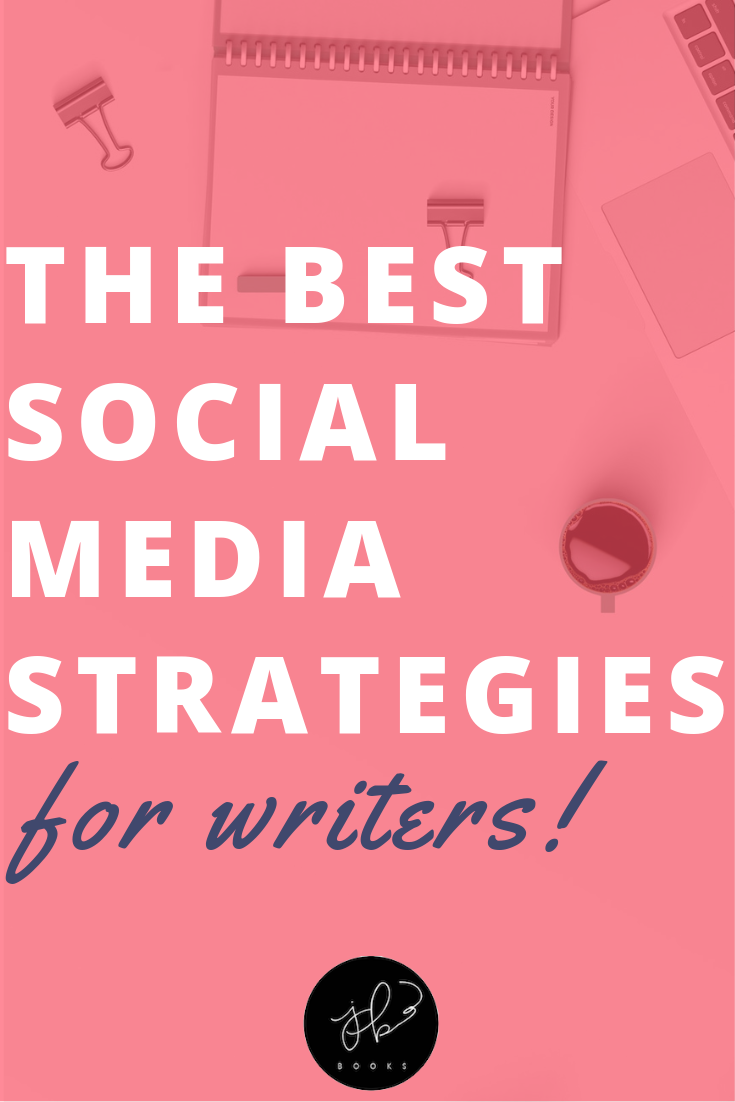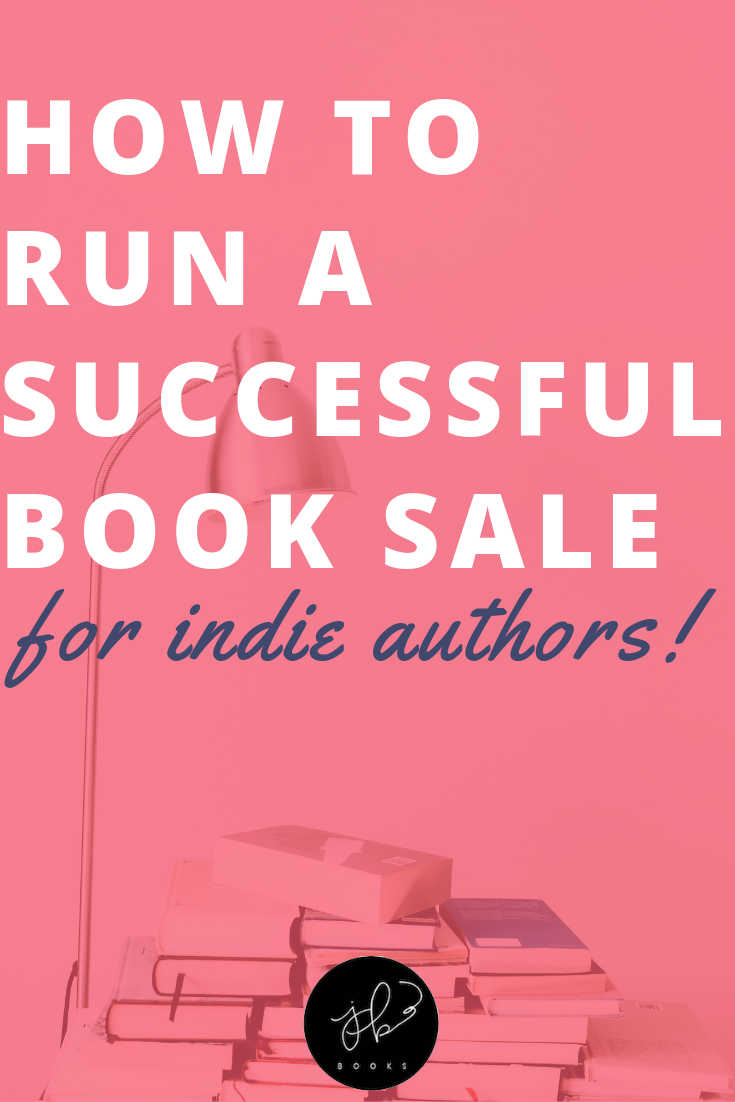The Best Social Media Strategies for Creative Writers
How to Run a Book Sale Successfully
Marketing for Writers: How to Set Yourself Up for Literary Success
I know what you're thinking. Marketing, gross. For whatever reason, marketing has gotten a bad rap. When we think "marketing," we tend to imagine annoying commercials or Twitter messages saying, "thanks for following, buy my book!"
And you know what we really hate about this? It's impersonal. But good news for all of you, my friends! Marketing can be a personal, interactive experience that not only builds your tribe, but allows you to flex your creative muscles. See? Not so bad.
Now, let's break this down to smart, actionable marketing for writers:
Develop Your Brand
Let me start by saying that I'm no expert. And also? I kind of hate that term with a burning passion. Essentially, it is all about figuring out who you are as a writer and what kind of readers you want to attract. I want my tribe to have fun. I want them to embrace positivity and color and extraordinary acts of awesomeness. If you'd like more concrete advice, read tips from PR expert Kayla Hollatz.
In order to develop your brand, you have to first develop yourself, your product and the world you're creating. Let's look at John Green for example. He writes books for teens; and therefore, appeals to a teenage audience. He's active on Tumblr and YouTube, and treats his readers like the intellectual, important people that they are. But most importantly? He's himself, through and through.
Practice: What kind of writer do you want to be? How can you utilize your personality as a way to promote your brand?
Develop Your Product
For us writers, we need to be connecting our readers with our books right from the start. I started blogging about my book, These are the Moments, from the beginning, even posting scenes along the way. Once my book was published, I needed multiple avenues of drawing people to my books. I created a prequel for my novel (read about a prequel is important here) and published it for free on Amazon. In that prequel, I mentioned that if you sign up for my email list, you'll receive a free second book, Moments Like These.
This is called a funnel, friends. Which, coincidentally, is another buzz word I hate.
But while writing is our primary product, it isn't the only one we have. Think of yourself as a small business. You sell books, but you also interact with customers and run the website and the social media. You are a master juggler. You are more than just one product.
Practice: Take some time to develop your social media. Make a list of your "products" and your goals.
Try New Things. Fail. Try again.
When it comes to your own writing and social media presence, don't be afraid to try new things. However, be aware of your time and efforts. Have you ever heard of the 80/20 rule? It states that 80 percent of your outcomes come from 20 percent of your efforts. Translation? Focus on what your readers respond to the most. Maybe it's Instagram. YouTube. Blogging. Then, see how that translates into sales and engagement.
Practice: Analyze your marketing plan. Where do you see the most engagement? How does this translate into sales?
Measure Your Success
There are hundreds of definitions for success. For me, success was writing a novel. Now, it's publishing that novel. In terms of monetary goals, I don't have a number, and I wouldn't want one. When thinking of success, ask yourself what is more important: sales or engagement?
Engagement often leads to sales. However, the other is not always true. Personally, I would rather have a small, engaged audience than a large, incommunicative one. I've found that the more you give, encourage and speak honestly, the greater your chances of forming a tribe are.
Practice: Evaluate your idea of success. What will it take to get you there? What steps can you take today?
And of course, my posts would never be complete without...
Discussion Time: Where have you seen the most success in your marketing strategy? What annoys you the most about marketing: as a marketer and someone being marketed to?
Book Bloggers: Where to Find Them and How to Win Them Over
Book bloggers are making a splash in the new world of publishing. They're posting photos on Instagram, reviews on their blogs and YouTube channels, and controlling the way we view new titles.
Think about that for a second. Book bloggers, people just like us, are out there making their voices heard. On their own. With no payroll.
In a way, book bloggers are like the reviewer version of self-publishers. They're out on their own, making their own rules. Free reviews? Free promotion? What's the catch?
Book bloggers are no longer the industry's best kept secret. They're a high commodity and their time is limited. So how do we get our books read? I've done the research, hands-on. Allow me to help!
Where to Find Book Bloggers
With my book releasing in a couple of months, I'm on the hunt to find great reviewers to read my book. So far, I've had pretty awesome success compiling my list. Here's where to look:
This is an amazing resource when it comes to finding book bloggers. Using hashtags, it's incredibly easy to seek out the right kind of readers for your book, and it's a hub for YA fans. Try typing these hashtags into the search bar:
- "bookstagram"
- "books"
- "igreads"
- "epicreads"
- "booklover"
Ahh, my social media crush. Twitter is the perfect place to engage in interaction with book bloggers. Let them know that you're interested in them, uniquely. Retweet them. Reply to them.
Give yourself a competitive edge by being genuinely interested in what they have to say. They like books and you like books. Common ground, eh? Here are some hashtags to search for them:
- "amreading"
- "fridayreads"
- "mustread"
- "bookgiveaway"
- "litchat"
NetGalley
The drawback of finding book bloggers through social media is that you'll need to send individual, personalized emails to each blogger that you find. This can be time-consuming and also a waste of time.
If you have to individually contact book bloggers, a few things may happen:
- The reviewer won't read your book. Again, they're busy people. Maybe they aren't taking on any more books. Maybe they don't read self-published books. You never know.
- The reviewer may read your book, but not review. The reviewer isn't bound to your book. There's a chance he/she may not finish your book or may simply forget to review.
- The reviewer may only read paperback. This isn't a problem, per se. However, shipping paperbacks can be expensive, so this isn't cost-efficient or time-efficient.
Thankfully, there's a service that can reach hundreds of book bloggers at once.
NetGalley allows you to post your title for a fee, and reviewers can then request an ARC (advanced reader copy) of your book for review. There are also co-op programs available, such as The Patchwork Press, that allows you to participate for a smaller price.
This lets you reach a wide range of book bloggers for a minimal effort. Love it!
How to Win Book Bloggers Over
Now that you've found them, how do you get them to love you back? Something to note: even if a book blogger agrees to read your book, there's no guarantee that he/she will review it. And if you do get a review, it might not be positive. Okay, now that I've scared you, let me help you better your chances at landing a review:
Abide by their review policy. (Usually on their blog.)
Make sure the book blogger accepts your genres.
Read their blogs. See what they're saying about other books.
Tell them your release date and other pertinent information.
Give them plenty of time.
Be prepared to answer any and all questions.
Make sure each pitch is personalized for each blogger.
Respect their time. Keep your email short and substantial.
Don't oversell. Let them know who you are and what you're about.
- Don't word your email with expectation. Present your pitch as a question and not a sure thing.
Discussion Time: Have you pitched to book bloggers? Tell us your success and failure stories. What advice can you share?
P.S. Need more publishing help? Check out this post on finding cover designers.








